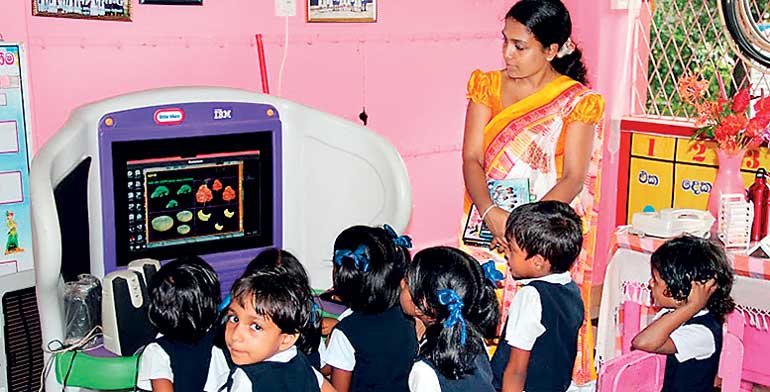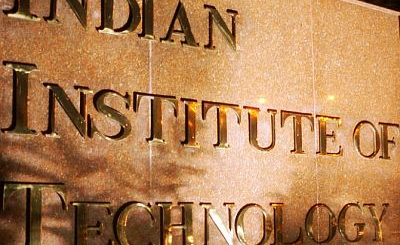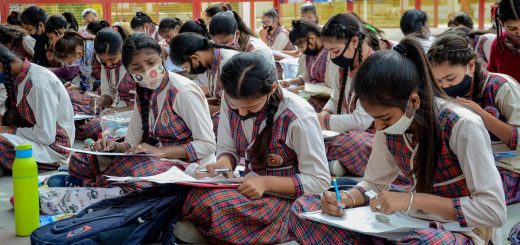Steps for educational reforms
By; INN/PIB, New Delhi, @infodeaofficial

Improving the quality of education is one of the prime focus of The Government of India and it is a continuous ongoing process. The vision of the Ministry is to realize India’s human resource potential to its fullest in the education sector with equity and inclusion. The Government is committed to provide equitable access to quality education to all sections of the society. Having nearly reached the goals of universalizing elementary education, and making substantial gains in expanding access to secondary and higher education, the focus is on improving the quality of education at all levels. Recognizing the centrality of states both in policy formulation and effective implementation of education reforms, the Ministry of HRD has been regularly convening meetings of the Central Advisory Board on Education (CABE), which is a composite body and is also the highest advisory body on education. All the schemes implemented by the Government of India are in consultation with the States which meet regularly through the meetings of CABE. Similarly, all reform initiatives are also through consensus evolved between the Centre and the States through the CABE.
Several initiatives are currently being undertaken in this direction such as in elementary education, the Right of Children to Free and Compulsory Education (RTE) Act, 2009 and Sarva Shiksha Abhiyan (SSA) programme aims for improvements in school infrastructure and in teaching and learning. Rashtriya Madhyamik Shiksha Abhiyan (RMSA), ICT in Schools, Centrally Sponsored Scheme on Teacher Education (CSSTE), Shaala Siddhi, Rashtriya Avishkar Abhiyan are being implemented to improve the quality of secondary education. In higher education also, various schemes, namely, Rashtriya Uchchatar Shiksha Abhiyan (RUSA), Global Initiative for Academics Network (GIAN), Impacting Research, Innovation & Technology (IMPRINT), Technical Education Quality Improvement Programme (TEQIP), Pandit Madan Mohan Malaviya National Mission on Teachers and Teaching (PMMMNMTT), Study Webs of Active-Learning for Young Aspiring Minds (SWAYAM), National Digital Library, campus connect programme, Uchhatar Avishkar Abhiyan, Unnat Bharat Abhiyan are being implemented to improve the quality of higher education. A number of initiatives are also undertaken by UGC and AICTE for quality improvement in higher and technical education.
The Government is in the process of framing a New Education Policy (NEP) for meeting the changing dynamics of the population’s requirement with regard to quality education, innovation and research, aiming to make India a knowledge superpower by equipping its students with the necessary skills and knowledge and to eliminate the shortage of manpower in science, technology, academics and industry, for which wide ranging consultations were undertaken at multiple levels of online, expert/thematic and grassroots from village to State, Zonal levels as well as at the National level.
Initially, a Committee for Evolution of the New Education Policy was constituted which submitted its report in May, 2016 and thereafter, the Ministry prepared ‘Some Inputs for the Draft National Education Policy, 2016’. Both these documents are treated as inputs for policy formulation. The Some Inputs document states that “Skill development programmes in school and higher education system be reoriented not only for gainful employment of our students but also to help them develop entrepreneurial skills”, “pre-vocational oriented activities be infused in the curriculum from early stages to develop positive attitude towards dignity of labour and develop skills in children”, “Academic aptitude tests will be conducted at various stages to assist students in identifying their true potential and areas of interest. Helplines will be set up and professional counsellors will be engaged in schools to overcome this limitation and also identify children with special learning needs, assist slow learners and underachievers, help in right choice of courses including vocational skill-based programs, and guide secondary and higher secondary students about relevant employment opportunities.” and that “A detailed plan for the creation of skill schools for improving employment opportunities for secondary school students in special focus districts will be prepared”.
Suggestions and inputs have been received from various stakeholders such as, individuals, organisations, autonomous bodies, Hon’ble MPs, GoI Ministries and State Governments on various aspects of education. The exercise of preparing a New Education Policy is still ongoing as a Committee for Draft National Education Policy under the Chairmanship of Dr. K. Kasturirangan has been constituted which will consider and examine all inputs and suggestions and is expected to submit its report by 31.03.2018. The Committee is in the process of drafting this policy for which several meetings have been held so far.
This information was given by the Minister of State (HRD), Dr. Satya Pal Singh today in a written reply to a Rajya Sabha question.




